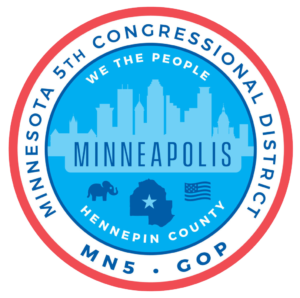Knowledge is power
Minnesota CD5 Republicans
An educated populace is necessary for good governance. Being an informed citizen helps us make better choices and create strong communities. When we know better, we do better.
Frequently Asked Questions
BPOU stands for Basic Political Organizational Unit.
- It is the smallest governing body of Republican organizations
- You will caucus with this group early in an election year
- It consists of several precincts, but depending on population density, its geographical size can vary. In rural areas, it can be a county or multiple counties, but in a metro area, a single city can consist of multiple BPOUs.
A Ward is a geographic location, represented by a City Council Member who is elected to make laws that govern the city.
Precincts are the basic geographical areas for organizing and administering elections. They are established by the governing body of each city or town, or by the county board in unorganized territories.
Precinct caucuses are meetings run by Minnesota’s political parties. They are the first in a series of meetings where parties may endorse candidates, select delegates, and set goals and values (called party platforms).
Congressional districts (CDs) are the 435 areas from which members are elected to the U.S. House of Representatives. Each congressional district is to be as equal in population to all other congressional districts in a state as practicable. There are currently 8 Congressional Districts in Minnesota.
- Congressional districts are delineated every 10 years based on the newest U.S. Census.
- Each congressional district has one U.S. House Representative.
- Each consists of a number of BPOUs, who help endorse one candidate
Use the links below to contact our U.S. legislators.

Minnesota State Senate Districts are determined by geographic location based on U.S. census data every 10 years. Each Senate District sends one State Senator to the Minnesota State Senate.
State House Districts are determined by State Senate Districts, which are determined by geographic location based on U.S. census data every 10 years. Two House Districts make up one State Senate District. Each House District sends one State Representative to the Minnesota House of Representatives.
Redistricting is the process of redrawing the boundaries of election districts to ensure that the people of each district are equally represented.
Redistricting is done in the United States after the completion of Congressional reapportionment, which decides how many seats each state has in the 435 member House of Representatives. Reapportionment happens following the Decennial Census.
In Minnesota, the state legislature has constitutional responsibility for redistricting Minnesota’s Congressional districts, as well as Minnesota Senate and House districts, and Metropolitan Council districts. Local governments are responsible for redistricting other election districts:
- County boards are responsible for redistricting county commissioner districts
- City councils are responsible for redistricting city wards
- School boards are responsible for redistricting board member districts.
In addition, during the redistricting time period, cities and townships will establish (or reestablish) their precinct boundaries as part of the redistricting process, as will counties that have unorganized territory.
PCR stands for Political Contribution Refund. Simply put, if you contribute up to $50 ($100 as a married couple) to a political candidate or party, the state of Minnesota will reimburse you for that contribution amount.
The beauty of our governmental system is that almost anyone can run for office! Here are some general guidelines:
ALL CANDIDATES
- Must be eligible to vote in Minnesota
- Must have not filed for another office at the upcoming primary or general election
- Must be 21 years of age or more upon assuming office
- Must have maintained residence in their district* for at least 30 days before the general election
*Note: Candidates for federal office are exempt; There are additional guidelines for state and local offices.
MAJOR PARTY CANDIDATES
Must have participated in the party’s most recent precinct caucuses, or intend to vote for a majority of the party’s candidates at the next general election.
CLICK HERE to find out if you are registered to vote.
Election judges are temporary, paid employees of local election officials trained to handle all aspects of voting at the polling place. Serving as an election judge is a chance to learn about elections, and is a great service to the community.
Recommended Reading
Hover over an image to learn more.
The Tragedy of American Compassion
MARVIN OLASKY
The birth and growth of the Progressive movement and welfare state, starting in the late 1800s, and the subsequent decrease in self-reliance.
Infidel
AYAAN HIRSI ALI
The coming of age of this distinguished political superstar and champion of free speech as well as the development of her beliefs, iron will, and extraordinary determination to fight injustice.
The Federalist Paprs
HAMILTON, MADISON, JAY
A collection of 85 articles and essays written by Alexander Hamilton, James Madison, and John Jay promoting the ratification of the United States Constitution.
Standing Up to Goliath
REBECCA FRIEDRICHS
Rebecca Friedrichs recounts her thirty-year odyssey as an elementary school teacher who comes face-to-face with the forces dividing and corrupting our schools and culture—state and national teachers’ unions.
The Road to Serfdom
F. A. HAYEK
An unimpeachable classic work in political philosophy, intellectual and cultural history, and economics, warning against the dangers of state control over the means of production.
Rush Revere Series
RUSH LIMBAUGH
A series of tales written especially for children ages 8-12 features a history teacher who travels back in time to have adventures with exceptional Americans.
Basic Economics
THOMAS SOWELL
A citizen’s guide to economics, written for those who want to understand how the economy works but have no interest in jargon or equations. Bestselling economist Thomas Sowell explains the general principles underlying different economic systems, with clear explanations of the entire field, from rent control and the rise and fall of businesses to the international balance of payments. This is the first book for anyone who wishes to understand how the economy functions.
Up from Slavery
BOOKER T. WASHINGTON
The 1901 autobiography of Booker T. Washington details his rise from the position of a slave child during the Civil War, to his work establishing vocational schools to help black people and other disadvantaged minorities learn useful, marketable skills and work to pull themselves, as a race, up by the bootstraps.
Democracy in America
ALEXIS DE TOCQUEVILLE
Alexis de Tocqueville, a young aristocratic French lawyer, came to the United States in 1831 to study its penitentiary systems. His nine-month visit and subsequent reading and reflection resulted in Democracy in America (1835–40), a landmark masterpiece of political observation and analysis.
Please Stop Helping Us
JASON L. RILEY
Why is it that so many efforts by liberals to lift the black underclass not only fail, but often harm the intended beneficiaries? Jason L. Riley examines how well-intentioned programs and policies that are intended to help the poor—and poor minorities in particular — often become massive barriers to moving forward because they aren’t working. Acknowledging this is an important first step.
Things That Matter
CHARLES KRAUTHAMMER
A brilliant stylist known for an uncompromising honesty that challenged conventional wisdom at every turn, Krauthammer dazzled readers for decades with his keen insight into politics and government. His weekly column was a must-read in Washington and across the country. Don’t miss the best of Krauthammer’s intelligence, erudition and wit collected in one volume.
Other Resources
MN GOP AFFILIATES
Asian American Republicans of MN
MN Federation of Republican Women
MN Organization of Republican Veterans
Republican Liberty Caucus of MN
Somali American Affiliate Group
Recommended Reading
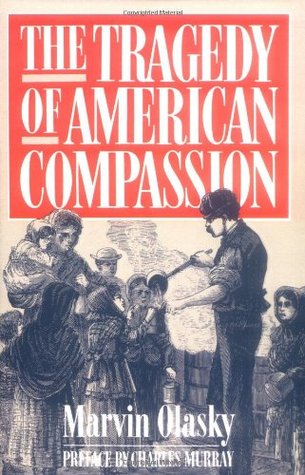
The Tragedy of American Compassion
Marvin Olasky
The birth and growth of the Progressive movement and welfare state, starting in the late 1800s, and the subsequent decrease in self-reliance.

Infidel
Ayaan Hirsi Ali
The coming of age of this distinguished political superstar and champion of free speech as well as the development of her beliefs, iron will, and extraordinary determination to fight injustice.
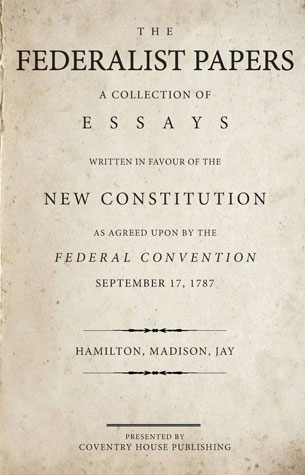
The Federalist Papers
Hamilton, Madison, Jay
A collection of 85 articles and essays written by Alexander Hamilton, James Madison, and John Jay promoting the ratification of the United States Constitution.
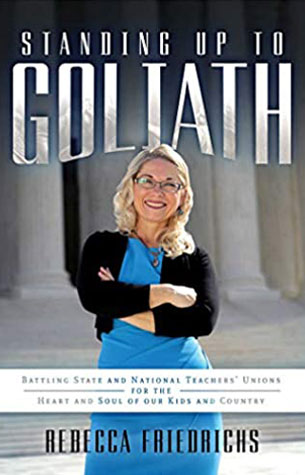
Standing Up to Goliath
Rebecca Friedrichs
Rebecca Friedrichs recounts her thirty-year odyssey as an elementary school teacher who comes face-to-face with the forces dividing and corrupting our schools and culture—state and national teachers’ unions.
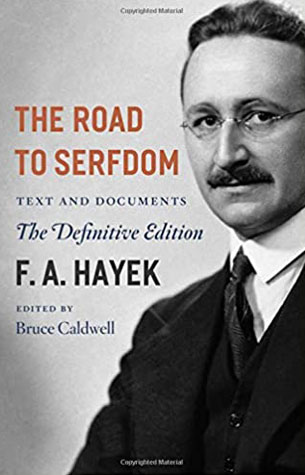
The Road to Serfdom
F.A. Hayek
An unimpeachable classic work in political philosophy, intellectual and cultural history, and economics, warning against the dangers of state control over the means of production.
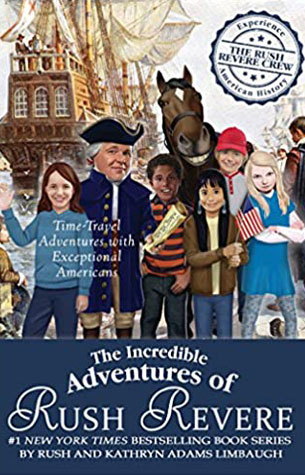
Rush Revere Series
Rush Limbaugh
A series of tales written especially for children ages 8-12 features a history teacher who travels back in time to have adventures with exceptional Americans.
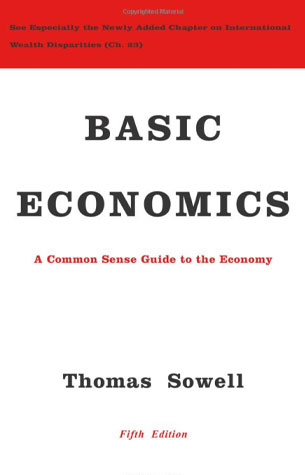
Basic Economics
Thomas Sowell
A citizen's guide to economics, written for those who want to understand how the economy works but have no interest in jargon or equations. Bestselling economist Thomas Sowell explains the general principles underlying different economic systems, with clear explanations of the entire field, from rent control and the rise and fall of businesses to the international balance of payments. This is the first book for anyone who wishes to understand how the economy functions.
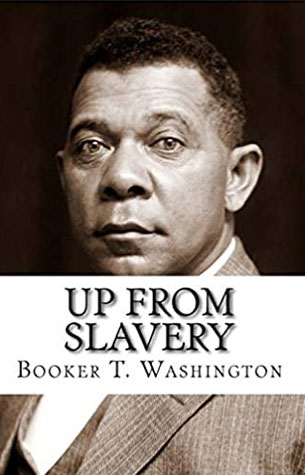
Up from Slavery
Booker T. Washington
The 1901 autobiography of Booker T. Washington details his rise from the position of a slave child during the Civil War, to his work establishing vocational schools to help black people and other disadvantaged minorities learn useful, marketable skills and work to pull themselves, as a race, up by the bootstraps.
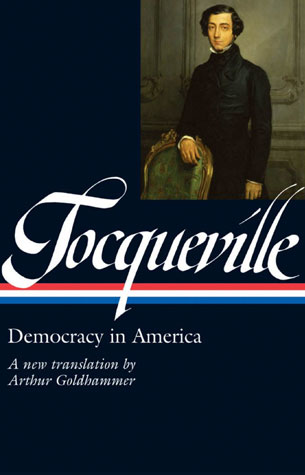
Democracy in America
Alexis de Tocqueville
Alexis de Tocqueville, a young aristocratic French lawyer, came to the United States in 1831 to study its penitentiary systems. His nine-month visit and subsequent reading and reflection resulted in Democracy in America (1835–40), a landmark masterpiece of political observation and analysis.
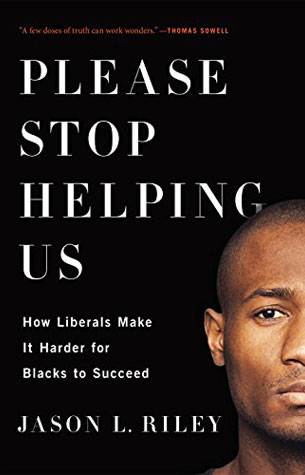
Please Stop Helping Us
Jason L. Riley
Why is it that so many efforts by liberals to lift the black underclass not only fail, but often harm the intended beneficiaries? Jason L. Riley examines how well-intentioned programs and policies that are intended to help the poor—and poor minorities in particular — often become massive barriers to moving forward because they aren’t working. Acknowledging this is an important first step.
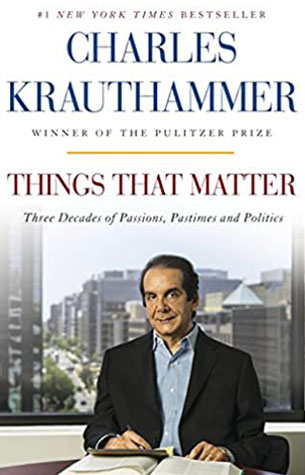
Things That Matter
Charles Krauthammer
A brilliant stylist known for an uncompromising honesty that challenged conventional wisdom at every turn, Krauthammer dazzled readers for decades with his keen insight into politics and government. His weekly column was a must-read in Washington and across the country. Don’t miss the best of Krauthammer’s intelligence, erudition and wit collected in one volume.
